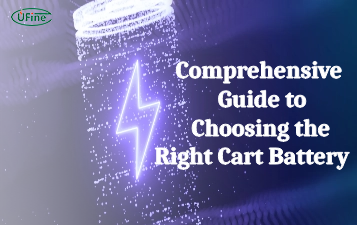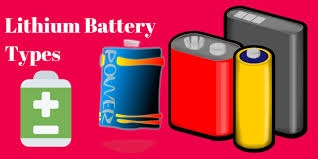In today’s fast-paced world, where technology is vital in our daily lives, finding the best lithium battery is crucial. Whether you’re powering a smartphone, electric vehicle, or renewable energy system, selecting the correct lithium battery can significantly impact performance, longevity, and overall satisfaction. This comprehensive guide will delve into lithium batteries, comparing different types, discussing critical considerations for selection, and exploring how to choose the ideal lithium battery for various applications.
Part 1. Comparison of lithium battery types
Lithium batteries come in various types, each with unique characteristics and advantages. Let’s take a closer look at the most common types of lithium batteries available in the market today:
Lithium-ion (Li-ion) Batteries
People widely use lithium-ion batteries in portable electronics like smartphones, laptops, and tablets. They offer a high energy density, allowing devices to run for longer durations without requiring frequent recharges. Li-ion batteries also have a low self-discharge rate, retaining their charge when unused. Additionally, they exhibit a low memory effect, meaning they don’t lose their maximum energy capacity over time. These rechargeable batteries offer a good balance between cost, performance, and lifespan.
Lithium Iron Phosphate (LiFePO4) Batteries
LiFePO4 batteries are known for their exceptional safety and long cycle life. People commonly use them in electric vehicles, solar energy storage systems, and other applications that require high energy demands. LiFePO4 batteries have a stable chemistry, reducing the risk of thermal runaway and ensuring a lower chance of fire or explosion. They also have a longer lifespan than traditional lithium-ion batteries, making them an excellent choice for applications requiring frequent charging and discharging cycles.
Lithium Polymer (LiPo) Batteries
Lithium polymer batteries are a lightweight and flexible alternative to traditional lithium-ion batteries. People commonly use them in drones, remote-controlled vehicles, and wearable devices. LiPo batteries can be manufactured in various shapes and sizes, allowing for greater design flexibility. They offer high energy density and sustain high discharge rates, making them suitable for applications requiring power bursts. However, they require careful handling and charging to prevent damage or swelling.
Lithium Titanate (LTO) Batteries
Lithium titanate batteries are known for their rapid charging capabilities and long lifespan. People often use them in electric vehicles and energy storage systems where fast charging and high power output are essential. LTO batteries can be charged to total capacity in minutes, making them ideal for applications requiring quick turnaround times. Additionally, they can withstand many charge-discharge cycles without significant degradation.
Part 2. Considerations for choosing the best lithium battery
1. Energy Capacity
The energy capacity of a lithium battery determines how much power it can store. It is essential to assess your power requirements and choose a battery with an adequate energy capacity to meet your needs. Consider factors such as the device’s power consumption, the duration of use between charges, and any additional power requirements during peak usage.
2. Voltage
Different applications require specific voltage levels to operate optimally. Ensure that your lithium battery provides the appropriate voltage output for your device. Mismatched voltage levels can lead to inefficient performance or potential damage to your equipment.
3. Size and Weight
Depending on the intended application, the size and weight of the lithium battery can be crucial factors. People prefer compact and lightweight batteries for portable devices like smartphones or wearable technology. However, the size and weight can be less restrictive for larger applications like electric vehicles or renewable energy systems.
4. Safety
Safety is paramount when dealing with lithium batteries. Look for batteries with built-in safety features such as overcharge protection, thermal management systems, and short-circuit prevention mechanisms. These features help mitigate the risk of accidents or damage caused by battery malfunctions.
5. Longevity
Consider the expected lifespan of the lithium battery. Some applications require batteries with extended cycle life, meaning they can withstand many charge-discharge cycles before experiencing significant degradation. Assess your usage patterns and choose a battery that meets your longevity requirements.
6. Environmental Impact
As environmental consciousness grows, selecting batteries with minimal environmental impact is essential. Look for batteries that are recyclable or have proper disposal methods in place. Consider the materials used in the battery’s construction and opt for lower toxicity and a reduced carbon footprint.
Part 3. Choose lithium batteries according to different applications
Different applications have varying power requirements and operational characteristics. Here are some key considerations when choosing lithium batteries for specific applications:
1. Portable Electronics
Lithium-ion batteries are an excellent choice for smartphones, laptops, and other portable devices. They offer a good balance between energy density, lifespan, and cost. Look for batteries with higher energy capacities to ensure more extended usage between charges.
2. Electric Vehicles
Electric vehicles demand high energy densities, rapid charging capabilities, and long cycle life. Lithium iron phosphate (LiFePO4) and lithium titanate (LTO) batteries are well-suited for electric vehicle applications. LiFePO4 batteries provide excellent safety features, while LTO batteries offer ultra-fast charging capabilities.
3. Renewable Energy Systems
Renewable energy systems, such as solar or wind power storage, require batteries with high energy capacities and long lifespans. Lithium iron phosphate (LiFePO4) batteries are famous for their safety, reliability, and ability to handle frequent charge-discharge cycles.
4. Consumer Electronics
Consumers often prefer lithium polymer (LiPo) batteries for electronic devices like digital cameras, drones, and remote-controlled vehicles. Their lightweight and flexible nature makes them ideal for compact designs. However, careful handling and charging practices are necessary to avoid damage.
5. Medical Devices
Medical devices often require reliable power sources. Hospitals and medical facilities commonly use lithium-ion batteries in medical equipment due to their stable performance, high energy density, and long shelf life. Ensure that the battery meets the specific voltage requirements of the medical device.
6. Power Tools
Power tools rely on batteries with high power output and durability. Lithium-ion batteries are widely used in power tools because they deliver consistent power and handle high discharge rates. Look for batteries with higher voltage ratings to ensure compatibility with power tools.
Part 4. FAQs
-
What is the most efficient lithium battery?
The most efficient lithium battery is the lithium-ion battery. -
Which type of lithium battery will last the longest?
The lithium battery type that will last the longest is the lithium-ion phosphate (LiFePO4) battery. -
What is the best lithium-ion battery for the money?
The best lithium-ion battery for the money is the Ufine battery because it is a professional manufacturer, and bulk purchasing offers discounts.
Related Tags:
More Articles

Comprehensive Guide to Choosing the Right Cart Battery
Choosing the right cart battery ensures optimal performance and longevity. This guide covers cart battery types and helps you make an informed choice.
The Ultimate Guide to 18650 Button Top Battery
18650 button top batteries are popular for their high energy density and reliability. This guide covers their key features, usage, and maintenance tips.
The Power of Slim: Unveiling the Potential of Flat Lithium Ion Battery
Flat lithium-ion batteries power devices from phones to vehicles. This article explores their design, benefits, types, applications, charging, and safety.
The Comprehensive Guide to Battery Balancing and Battery Balancer
Battery balancing and balancers optimize performance, longevity, and safety. This guide covers techniques and tips for choosing the right balancer.
10 Key Facts About Drone Battery for 2024
Uncover crucial insights with "10 Key Facts About Drone Battery for 2024." Learn the latest trends and essential details on drone batteries.




